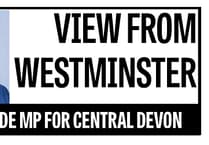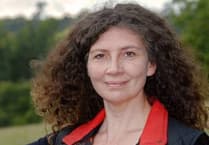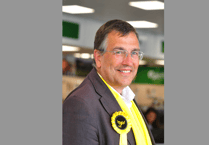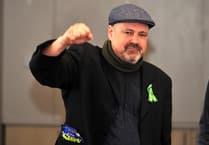I WAS intending to write about the railway this week. I know a good deal about it, and wrote an essay for the State Scholarship aged 17 on the likely benefits of low mass trains for local lines in 1957! It is a superb and civilised way to travel, writes retired consultant, Doctor David Halpin.
It wins out greatly over road transport because the rolling resistance of large steel wheels on steel track is so low, and there is inherent safety - especially with signalling tied to electrification. As to the latter just think how the billions spent on the HS2 fiasco could have been spent instead on electrification of all the main lines. And know there are about 30 million cars now on our roads as the ‘planners’ and over them the ‘councillors’, spew ‘houses’ everywhere. All this reflects the fact that the political class has no expertise nor foresight. They, wrongly, have their greasy hands on the levers and not the many who have the innate ingenuity and skill of the British.
By the way, can the climate change brigade tell me if you can make steel via solar panels? Perhaps one can using wind turbines, which have very large embedded energy costs in their manufacture and construction. But what goes on in the steel works in those Februaries when high pressure is stuck, and the skies overcast for weeks and the air chill?
I wrote last week about the deliberate but stealthy destruction of our NHS. I cited the bulldozing of our excellent Princess Elizabeth Orthopaedic Hospital at Wonford, Exeter in 1996, 10 years after it was renewed very well with four new operating theatres, a new ward etc.
This is emblematic of the destruction of so much of our public services after we, with our taxes, built so much that was good for all after the Second World War. I described it as vicious and actually fascist. My definition of this being ‘the subjugation of the individual’s will and freedom by an overweening state. Humanity withers, freedom of speech is stifled and the soul dies. Self preservation becomes a dominant drive’. Why destroy a hospital and the human spirit within it? It is obvious. ‘Public bad, private good’.
Feed the corporations the profits, and make sure that the public go cap in hand when they are sick, as they did in Victorian times where ‘they’ want you back there now.
In last week’s paper there was a happy record of a walk by nursing staff of the RD&E cardiology unit from the North Devon District Hospital, now absorbed into the RD&E trust, to the RD&E. These nurses were asking how patients attending it or in hospital would like this money spent. They were showing how deeply they care; for their patients and the vital service provided. I have mentioned before how a very good friend of mine speaks so highly of the urology unit there. Another with a kidney graft, and more recently a stroke, says how every one - consultant to nurse to cleaner - in that unit cares so much.
You find this everywhere you look within our NHS but sometimes the opposite is more obvious. I mentioned how a young opthalmologist in training at Torbay, who came I think from Pakistan, took time and love to remove an incurled eyelash from a friend. Imagine having the feeling of grit in your eye morning to night, and the great relief given when removed.
I finish, and with tears in my eyes, of the care our daughter gave to others and that which she was given as a vile rectal cancer advanced. This was what I wrote in the service sheet when we gathered with many at Yeovil crematorium. This from -
‘I write as Fee’s Dad, and as a doctor first and surgeon second. She served as a carer and supervisor for nine years. This included night duty looking after Robert with his tetraplegia and tracheostomy and she cared for many around her.
‘After her emergency presentation with a vile cancer, she has had wonderful care from our NHS, her family doctor, and at the ending of her life, from the district nurses and the Weldmar Hospice nurses (based in Dorchester). Around these circles were Andy her partner, and our family, giving their loving care.’
Thus circles are completed and that helps our wonderful world go round. There is at present much planned division and strife in our nation and world. I say and write often that ‘to care is the most important characteristic of any worthwhile society’.
And even more often ‘no mother and child should be in the least harmed anywhere in our still beautiful world’. So in remembering Fee, we will do as she did and encourage light and love.




